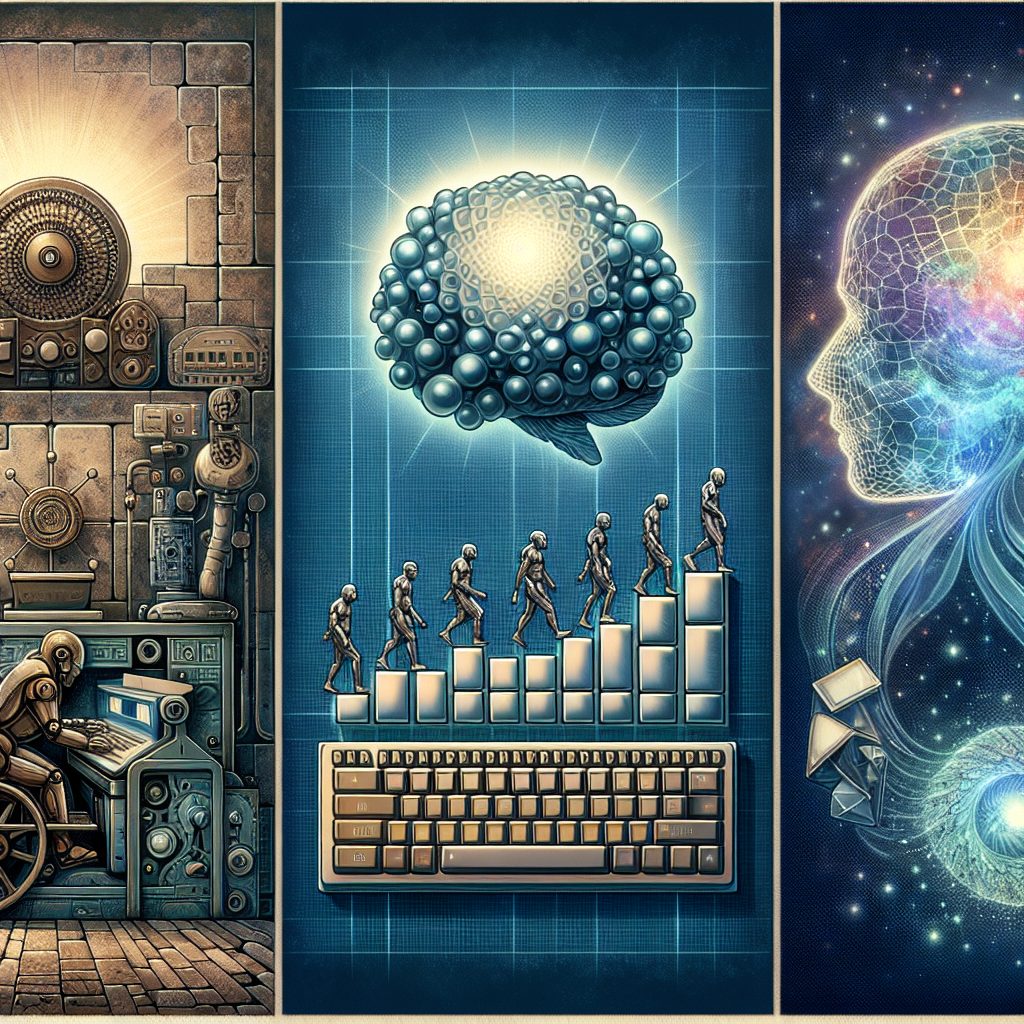From AlphaGo to AGI: The Evolution of Intelligent Machines
In recent years, the field of artificial intelligence (AI) has seen significant advancements, with machines now capable of performing complex tasks that were once thought to be exclusive to human intelligence. One of the most notable milestones in AI development was the creation of AlphaGo, a computer program developed by DeepMind that made headlines in 2016 for defeating world champion Go player Lee Sedol. This achievement marked a major breakthrough in AI research and sparked a renewed interest in the quest for artificial general intelligence (AGI) – machines that possess the same level of intelligence as humans.
The Evolution of AI: From Turing to Deep Learning
The concept of artificial intelligence has been around for decades, with early pioneers such as Alan Turing laying the groundwork for modern AI research. Turing’s famous test, in which a machine attempts to convince a human judge that it is also human, set the stage for the development of intelligent machines. However, progress in AI was slow in the early days, with limited computing power and a lack of sophisticated algorithms hampering researchers’ efforts.
It wasn’t until the 21st century that significant advancements in AI began to take place, thanks in large part to the rise of deep learning. Deep learning is a subset of machine learning that uses artificial neural networks to simulate the way the human brain processes information. By training these neural networks on massive amounts of data, researchers were able to create algorithms that could learn to perform tasks such as image recognition, natural language processing, and game playing.
AlphaGo and the Rise of Reinforcement Learning
One of the most famous examples of deep learning in action is AlphaGo, the computer program developed by DeepMind that became the first AI to defeat a world champion Go player. Go is an ancient Chinese board game that is notoriously difficult for computers to play, due to its complexity and the vast number of possible moves. However, AlphaGo used a combination of deep learning and reinforcement learning – a type of machine learning that uses rewards and punishments to teach an AI agent to make decisions – to master the game and defeat human opponents.
The success of AlphaGo was a watershed moment in the history of AI, demonstrating the power of deep learning and reinforcement learning to create intelligent machines. Since then, researchers have continued to build upon these techniques, developing AI systems that can outperform humans in a wide range of tasks, from playing video games to driving cars.
The Quest for AGI
While the achievements of AI researchers in recent years have been impressive, there is still a long way to go before we can create machines that possess true artificial general intelligence. AGI refers to machines that have the ability to understand and learn any intellectual task that a human can, and to apply that knowledge to new situations. While current AI systems excel at specific tasks, such as playing games or recognizing objects in images, they lack the flexibility and adaptability of human intelligence.
Creating AGI is a daunting challenge, as it requires researchers to develop algorithms that can learn from a wide range of data sources, generalize their knowledge to new situations, and adapt to changing environments. While progress has been made in these areas, there are still many technical hurdles to overcome before we can create machines that are truly intelligent.
FAQs
Q: What is the difference between artificial intelligence and artificial general intelligence?
A: Artificial intelligence refers to machines that are capable of performing specific tasks that require human-like intelligence, such as playing games or recognizing objects in images. Artificial general intelligence, on the other hand, refers to machines that possess the same level of intelligence as humans, with the ability to learn and adapt to new situations.
Q: How close are we to achieving AGI?
A: While significant progress has been made in AI research in recent years, creating machines that possess true artificial general intelligence remains a distant goal. Researchers are still working to overcome technical challenges such as scalability, data efficiency, and interpretability in order to create machines that can learn and adapt in a human-like manner.
Q: What are the ethical implications of developing AGI?
A: The development of artificial general intelligence raises a number of ethical concerns, including the potential for AI systems to outperform humans in a wide range of tasks, leading to job displacement and economic disruption. There are also concerns about the potential for AI systems to make decisions that could harm humans, either intentionally or unintentionally. Researchers and policymakers are working to address these concerns and ensure that AI technologies are developed in a responsible and ethical manner.
In conclusion, the evolution of intelligent machines from AlphaGo to AGI has been a remarkable journey, showcasing the power of deep learning and reinforcement learning to create machines that can outperform humans in a wide range of tasks. While the quest for artificial general intelligence remains a daunting challenge, researchers are making steady progress towards creating machines that possess the same level of intelligence as humans. With continued advancements in AI research and a focus on ethical considerations, we may one day see the emergence of truly intelligent machines that can revolutionize the way we live and work.

